Pioneering study by Clear Channel, JCDecaux UK and Posterscope proves moments and content relevance in Digital Out of Home campaigns increase consumer brain response, ad recall, brand / creative rating and sales response
The launch of the world’s most comprehensive study into the power of relevancy in Out of Home released today has revealed that Digital Out of Home campaigns that use contextually relevant messaging achieve an average +17% more effective audience response.
The research study, called “The Moments of Truth”, was commissioned by Clear Channel, JCDecaux UK and Posterscope, using a combination of three research techniques dubbed ‘research to reality’: the most wide-ranging application of Neuroscience in DOOH ever undertaken to measure brain response, eye tracking research to measure ad recall, and test and control sales uplift studies to understand how dynamic DOOH drives direct sales response.
Key findings from this pioneering study reveal that consumer brain response is 18% higher when viewing relevant content in digital Out of Home campaigns, which in turn leads to a 17% increase in consumers’ spontaneous advertising recall, and ultimately proving that dynamic digital Out of Home campaigns can deliver a 16% sales uplift. When combined these findings give an overall campaign effectiveness uplift of +17%.Amid the backdrop of increased investment from both advertisers and media owners, and digital Out of Home now accounting for 53% of Out of Home revenue*, “The Moments of Truth” research has been designed to inform and educate the marketing industry on how to maximise DOOH performance and consumer response.
The three stages of the research uncovered additional insights into consumer response to dynamic Out of Home:
STAGE 1: BRAIN RESPONSE
This element of the research, conducted by leading Neuroscience research company, Neuro-Insight, aimed to expand understanding of advertising at relevant moments, and why content featuring individual dynamic data triggers, such as location or live updates, is more effective at driving increased levels of brain response. Using the established Neuroscience technique of Steady State Topography (SST), the research measured the brain responses of more than 160 people who were exposed to content across numerous different brand categories on a full-size portrait DOOH screen and revealed the following:
Displaying a brand or product ad at the right moment (either by time/day of week)
- An average +12% increase in brain response when displaying a ‘brand’ or ‘product’ communication at the most relevant moment
Displaying unique and relevant content based on either the time, location, weather or a live update in time.
- An average +18% increase in brain response when displaying content that was relevant using either the location, the weather, the time or a live update as the stimulus trigger.
The combination of the above – or the ‘nirvana state’ equals the correct application of content and moment
- An average +32% increase in brain response when displaying most relevant content at the most relevant moment.
STAGE 2:AD RECALL
Measuring ad recall and brand / creative rating was conducted by Research Bods using its online webcam eye tracking software. Over 280 respondents viewed ‘walk-through’ footage of a shopping mall with six DOOH screens each featuring a different brand’s advertising. This part of the research demonstrated that advertising at relevant moments and with relevant content attracted attention to advertising and improved brand and creative ratings:
- +6% average increase in time spent viewing at either the most relevant moment or applying the most relevant dynamic content
- +17% average increase in spontaneous ad awareness for relevant ads
- +6% average increase in creative rating, in metrics including consideration, recommendation, trust and preference
STAGE 3: SALES RESPONSE
This aspect of the research explored whether applying the most relevant content and moment in the real world, drove a consumer action versus the traditional singular DOOH creative approach. It revealed:
- +16% increase in sales when applying a Dynamic OOH campaign versus a control of no OOH
- This is versus a benchmark of seeing a +9% average increase in sales when applying a traditional singular creative message campaign vs. no OOH.
Richard Bon, Joint Managing Director of Clear Channel, said: “We are delighted to be part of this collaborative research that further demonstrates the value and benefits of Digital Out of Home advertising. For the first time ever, we have been able to develop empirical, end-to-end insights on dynamic campaigns, that not only inform advertisers why content and context relevancy matters but also offer clear guidance on how to best harness these opportunities to maximise campaign performance.“
Dallas Wiles, UK Co-CEO of JCDecaux UK, added: “It’s vital for the Out of Home sector to demonstrate that our campaign solutions will be effective in driving measurable positive outcomes. This landmark collaborative project does exactly that. It shows how the use of data-driven scheduling together with relevant copy can boost effectiveness significantly. Increasingly we’ll be encouraging advertisers to adopt this approach as ‘standard’.”
Glen Wilson, MD at Posterscope, concluded: “The ability to deploy truly dynamic content across thousands of high quality, networked digital screens is probably the most significant step forward for OOH since the arrival of those digital screens well over a decade ago. But its potential is still significantly under-estimated, with media spend on dynamically-enabled digital Out of Home representing only about 8% of all DOOH campaigns. We’ve always believed in the power of dynamic and seen amazing results from those clients that have embraced it. This research proves beyond doubt that dynamic campaigns work, delivering on effectiveness and engagement, but perhaps most importantly, generating an uplift in sales.”
*2019 digital Out of Home revenue - Outsmart PWC UK OOH Advertising Revenue report.
